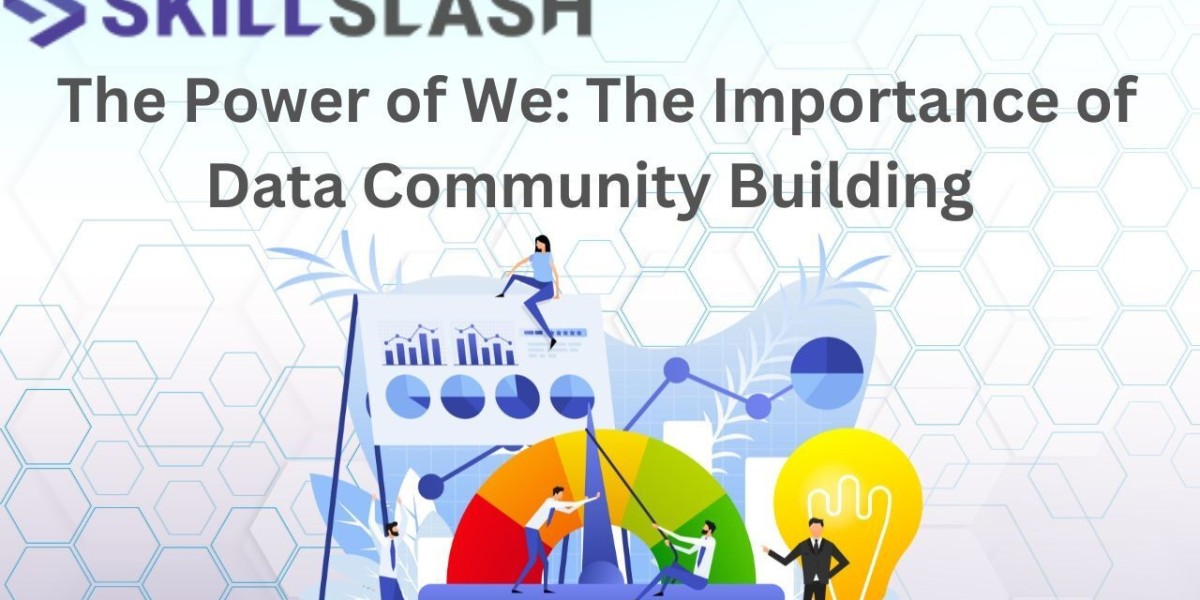From healthcare to finance to agriculture to entertainment, data has become the engine room for discoveries and cutting-edge technologies. But with so much data out there, it’s hard to know where to start. That is where data community building comes in. It’s an essential part of innovation, where ideas come from, knowledge is exchanged, and new solutions are created. In the era of data-driven innovation, the power of our collective efforts will determine human progress. That is why data community cultivation is more critical than ever.
Here we discuss why it’s so important to create and sustain data communities, not just to drive innovation, but also to ensure that it is used ethically, responsibly, and equitably in a world that’s increasingly data-driven.
What is Data Community Building ?
Building a data community is all about connecting people, companies, and experts who are passionate about data. It’s become more popular in recent years because data is so important in different industries. Data community building is all about working together, sharing knowledge, and connecting with like-minded people who share a passion for data. You can be a data scientist, an analyst, an engineer, a data enthusiast, or even a non-technical person who wants to use data for making decisions. Data community building helps people feel like they belong and have a common purpose. It’s a place where people can share ideas, learn, and work together to get better at data-related tasks.
Education and skill development are one of the most important components of data community building. Many communities offer workshops and webinars, as well as training sessions, to help members improve their data-related abilities. Newcomers and seasoned professionals alike benefit from the opportunity to learn about the latest tools and technologies, as well as best practices in data analytics, data science and data engineering.
Data community building also serves as a platform for discussing new trends and challenges in the data landscape. Participants can engage in discussions on data ethics, privacy and data governance, as well as the ethical consequences of data-driven decisions-making. This not only improves their understanding, but also encourages responsible and ethical data practice within the community.
Another aspect of data community building is collaboration and innovation. Data community members often collaborate on open-source work, research projects, or data-related challenges. By sharing knowledge and resources, data communities build innovative solutions and create a culture of innovation within the data ecosystem.
Data Community Building Guidelines and Practices
The core of data community building is based on the principles of inclusion and accessibility, which means that discussions and resources related to data are accessible to everyone, regardless of their background or experience. A successful data community building starts with creating spaces, whether online or offline, where people can share their thoughts, questions, and ask for help. These spaces often use various communication channels (forums, social networks, webinars) to engage with each other and share valuable insights. Trust and transparency are at the heart of data community building.
To be successful, a community must have a culture of integrity and honesty. This means clear guidelines for sharing data, protecting privacy, and using data responsibly. Effective data community leaders also play an important role in setting the tone and direction for the community, which helps members feel connected and have a sense of purpose.
The basic guidelines and principles therefore include,
Foster a welcoming environment that embraces diversity, where individuals from various backgrounds and skill levels feel valued and included.
Promote the exchange of insights, resources, and expertise among community members to facilitate learning and growth.
Define a clear mission and objectives for the community, ensuring everyone understands its goals and how they contribute.
Encourage active participation through discussions, events, and collaboration, keeping members engaged and invested in the community.
Cultivate a culture of trust and mutual respect, emphasizing ethical behavior, open communication, and empathy among members.
Networking and Data Community Building
Networking is an essential part of building a successful data community. It helps data professionals share ideas, know-how, and best practices, so they can work together and innovate.
Through networking events, meetups, forums, and social media, data professionals can get together, learn from each other, and build connections with like-minded people. This helps them improve their skills and stay up to date with the latest data science and analytics trends.
Plus, networking opens up career paths, so data enthusiasts can find job opportunities, mentors, and connections that help them advance their careers in the data community. All in all, networking is what fuels the growth, knowledge, and progress of the data community.
Social media and Data Community Building
Social media has become an essential tool for building and maintaining a data community. Social media platforms like Twitter and Linkedln, as well as other specialized forums, create a space where data experts, enthusiasts and organizations can come together, share ideas, and ask questions. These platforms allow people to share their expertise and exchange best practices. Social media also plays a big role in spreading information about events and conferences related to data, like webinars and workshops, so that community members stay up to date.
It also helps people form groups and communities around specific data areas, tools or techniques, so that like-minded people feel like they belong and can benefit from the wisdom of the community.
How does one join a Data Building Community ?
A data building community is a group of people or organizations that share a common interest in gathering, managing, and using data. Data building communities can be a great place to network, learn, and collaborate on projects related to data. Here are the general steps to help you join a data building community :
Identify Your Interests:
Determine your specific interests within the data field. Are you interested in data science, data engineering, data analytics, data visualization, machine learning, or a related area? Understanding your focus will help you find the right community.
Online Research:
Start your search for data building communities online. Websites, social media platforms, and forums are great places to find communities. Some popular platforms include GitHub, Reddit, LinkedIn groups, and specialized forums like Kaggle or Stack Overflow.
Attend Meetups and Conferences:
Attend local or virtual meetups, conferences, and seminars related to data. These events often attract professionals and enthusiasts who can introduce you to relevant communities.
Use Social Media:
Follow hashtags and accounts related to your interests on platforms like Twitter, Instagram, and LinkedIn. Engage in discussions and conversations to connect with like-minded individuals.
Join Online Communities: Participate in online communities, such as subreddits, forums, or Slack channels dedicated to data topics. Be active by asking questions, sharing your knowledge, and collaborating on projects.
GitHub:
If you're interested in data science or data analysis, explore GitHub repositories and consider contributing to open-source projects. This can help you connect with other data enthusiasts.
LinkedIn:
Build a strong LinkedIn profile highlighting your data-related skills and interests. Join LinkedIn groups and follow influential professionals in your field to stay updated on discussions and opportunities.
Attend Workshops and Webinars:
Look for workshops and webinars related to data topics. These events are often organized by data professionals and provide excellent networking opportunities.
Create Your Own Content:
Consider starting a blog, YouTube channel, or social media account where you share your knowledge and insights about data. This can help you attract like-minded individuals.
Remember that building a strong network and reputation within a data building community takes time and effort. Be patient and consistent in your engagement, and you'll gradually become a valuable member of the community.


